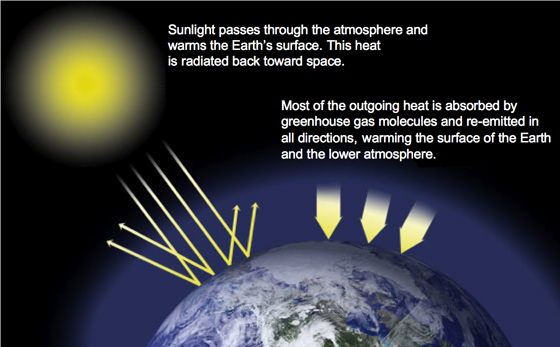The Earth's climate is a complex system influenced by a variety of factors, including the composition of the atmosphere. One important aspect of this is the role of greenhouse gases, which trap heat in the atmosphere and help regulate the temperature of the planet. In recent years, scientists have become increasingly interested in the relationship between ice, greenhouse gases, and chemistry, as these factors all have a significant impact on the Earth's climate.
Ice plays a crucial role in the Earth's climate system, both through its reflective properties and its ability to store water. Ice reflects sunlight back into space, which helps to cool the planet. Additionally, as the ice melts, it releases freshwater into the oceans, which can impact the salinity and temperature of seawater, and in turn, impact ocean currents and weather patterns.
Greenhouse gases are another important factor in the Earth's climate system. These gases, which include carbon dioxide, methane, and water vapor, trap heat in the atmosphere and help regulate the temperature of the planet. While some greenhouse gases occur naturally, others are produced through human activities such as burning fossil fuels and deforestation. The increasing levels of greenhouse gases in the atmosphere are contributing to global warming and climate change.
Chemistry also plays a crucial role in the Earth's climate system. For example, reactions between greenhouse gases and other chemicals in the atmosphere can lead to the formation of smog and other air pollutants. Additionally, chemical reactions involving ice can impact the Earth's climate by influencing the amount of sunlight that is reflected back into space. When ice reacts with certain chemicals in the atmosphere, it can change the properties of the ice, making it less reflective and allowing more sunlight to be absorbed, which can contribute to global warming.
Understanding the complex relationship between ice, greenhouse gases, and chemistry is crucial for predicting the future of the Earth's climate. Scientists are continually studying these factors to better understand how they interact and how they may impact the planet in the future. This research is essential for developing effective strategies to mitigate the impacts of climate change and ensure a sustainable future for our planet.
In conclusion, the relationship between ice, greenhouse gases, and chemistry is complex and multifaceted and plays a critical role in the Earth's climate system. Understanding how these factors interact is essential for predicting the future of our planet and developing effective strategies to mitigate the impacts of climate change. As we continue to study these factors, it is crucial that we work together to find solutions that will protect the health of our planet and ensure a sustainable future for generations to come.



0 Comments